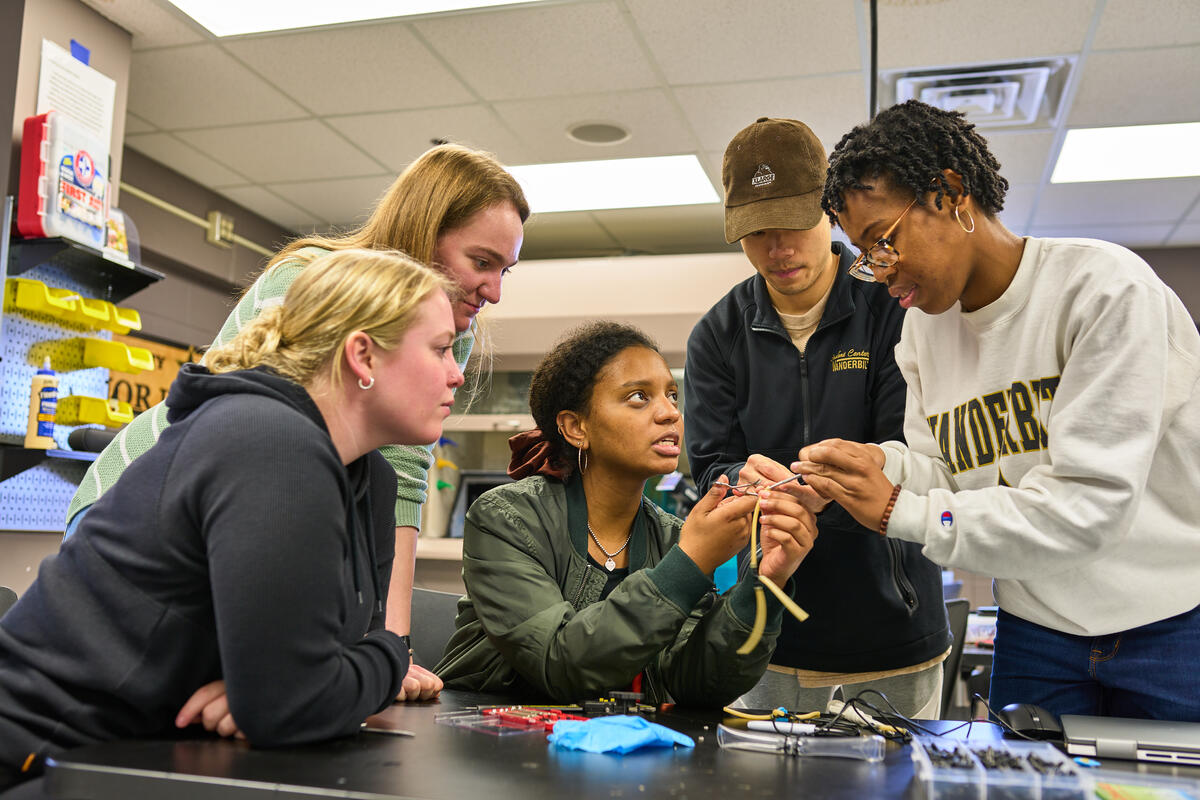
Overview
Envision an educational environment that personalizes instruction in a community-centered approach to create leaders in academia, industry and medicine? We do. Our accredited biomedical engineering program is a pioneer in its field and remains one of the most well respected programs nationally. Our students become independent, productive and adaptive interdisciplinary experts.
The foundations of biomedical engineering are the same as those in other engineering disciplines, as it is built on mathematics, physics, chemistry and engineering principles. Biomedical engineering relies on these foundations to solve problems in biology and medicine over the widest range of scales - from nanoscale and molecular levels to the whole body. Biomedical engineering provides a robust platform for employment in the medical device and instrumentation industries as well as careers in companies that specialize in the development and application of biologics, biomaterials, implants and processes.
In addition, our graduates gain entry into nationally recognized graduate schools for continuing studies in biomedical engineering. Biomedical engineering is also excellent preparation for and a rigorous path of entry into graduate study in medicine for those students willing and able to excel in mathematics, physics, chemistry, biology, physiology and engineering.
- Are you a high school student who wants to learn more about the Vanderbilt University Biomedical Engineering Department? Email hannah.r.behrmann@vanderbilt.edu or amanda.r.lowery@vanderbilt.edu to schedule a time to get a personal tour of the department or to ask any questions you may have about BME at Vanderbilt.
Student Opportunities
Contact BME
Department of Biomedical Engineering
Phone: 615-322-3521
Fax: 615-343-7919
Chair of Department of Biomedical Engineering
Michael Miga,
michael.i.miga@Vanderbilt.Edu
615-343-8336
Director of Undergraduate Studies
Amanda Lowery, Ph.D.
amanda.r.lowery@vanderbilt.edu
615-936-8345
Undergraduate Assistant
Hannah Behrmann
hannah.r.behrmann@vanderbilt.edu